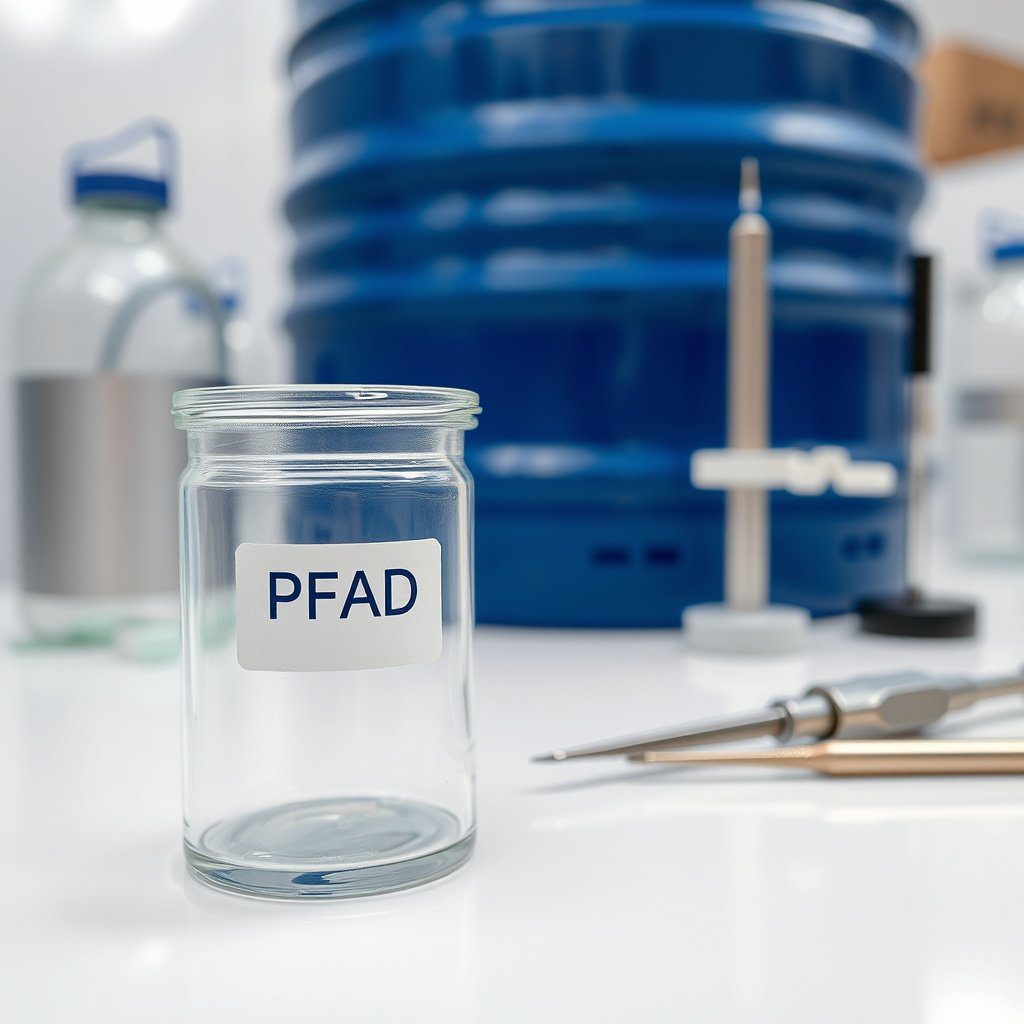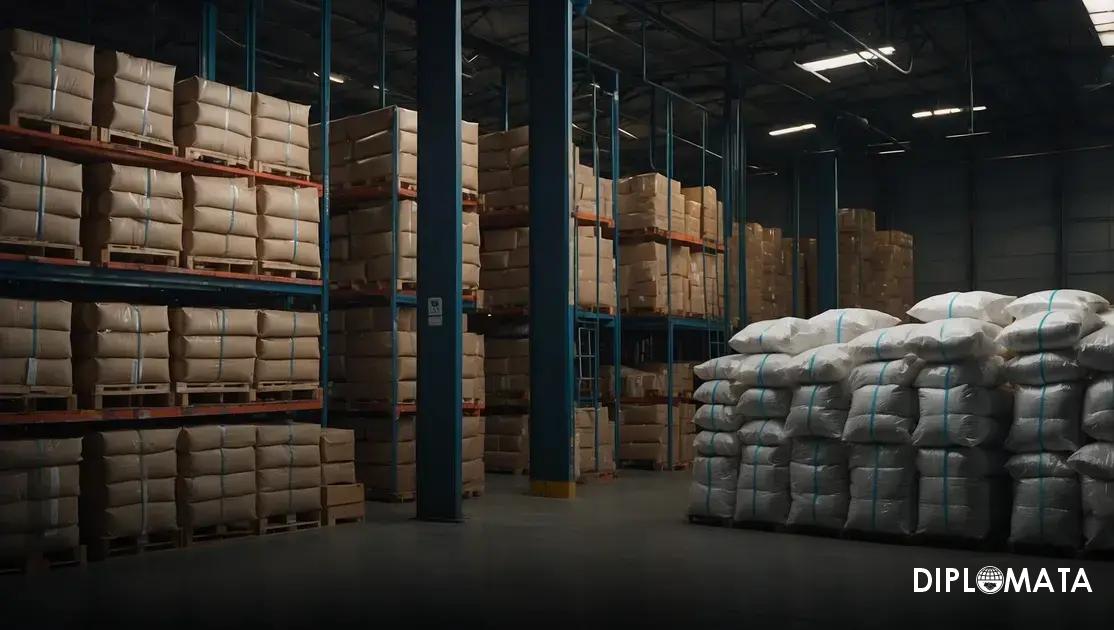In the chemical and oleochemical industries, tracking palm fatty acid shipments is more than a logistics task—it’s a strategic capability that sustains product quality, regulatory compliance, and competitive advantage.
For twenty years, Diplomata Comercial has combined deep technical expertise with global reach to deliver
Tracking Palm Fatty Acid Shipments: Technology, KPIs, and Best Practices
a reliable supply of palm-derived fatty acids to manufacturers across HPPC, pharma, and nutrition sectors.
This guide distills practical, field-tested approaches to visibility, control, and optimization of PFA shipments, from early planning to final delivery.
By weaving technology with disciplined metrics, you can reduce risk, improve service levels, and protect your bottom line amid volatile markets.
The focus is not merely on moving cargo; it’s about building a traceable, auditable, and scalable logistics program that stands up to audits, customer requirements, and evolving regulations.
Throughout, you’ll see how a seasoned distributor with a global footprint translates complex data into actionable decisions.
In practice, this means fewer surprises, clearer responsibilities, and measurable value for your entire supply chain.
Tracking Palm Fatty Acid Shipments: Technology, KPIs, and Best Practices
Technology is the backbone of modern PFA logistics.
Real-time visibility, coupled with robust data integrity, empowers procurement teams and operations to see the exact state of a shipment at every leg of the journey.
For twenty years, Diplomata Comercial has integrated best-in-class systems with on-the-ground expertise to ensure that palm fatty acid shipments move with precision.
The result is a scalable process that adapts to changing demand, supplier dynamics, and regional regulations.
In this section, we’ll explore the components of a technology-enabled tracking program and how to implement them effectively across your organization.
Real-Time Data Capture: IoT, RFID, and Barcoding
Real-time data capture starts with sensors and tags that monitor temperature, humidity, location, and agitation during transit.
For PFA, maintaining product integrity is critical; high-quality oleochemicals can be sensitive to heat and moisture, which can affect downstream performance.
IoT devices, RFID tags, and barcodes provide the granularity you need to verify conditions at every checkpoint.
A practical approach is to deploy a layered sensing strategy: fixed gateways at production sites, portable readers along transit routes, and cloud-based dashboards accessible to your logistics team.
This creates end-to-end visibility and reduces blind spots that often cause service gaps.
As a convex combination of hardware and software, this approach yields tangible benefits: faster exception handling, more accurate inventory counts, and better alignment with customer expectations.
Diplomata Comercial has demonstrated how leveraging real-time data translates into smoother customs clearance, fewer stockouts, and improved quality control across multiple continents.
Cloud-Based Platforms and Data Integration
Collecting data is only half the battle; the other half is turning raw numbers into actionable insights.
Cloud platforms enable secure data integration across suppliers, carriers, and facilities.
For PFA shipments, this means harmonizing batch numbers, COAs, shipping documents, and sensor readings into a single source of truth.
An integrated system supports proactive exception management and compliance tracking, reducing firefighting during peak seasons.
Diplomata Comercial emphasizes a connected ecosystem where ERP, transport management systems (TMS), and quality databases talk to each other in real-time, enabling faster decisions and greater resilience.
- Centralized dashboards that show temperature excursions and location histories.
- Automated alerts when parameters fall outside approved ranges.
- Audit-ready data trails for regulatory inspections and customer audits.
Key KPIs to Monitor Palm Fatty Acid Shipments for Superior Performance
KPIs are the language of performance.
The right metrics translate daily activities into insights that drive improvements across procurement, transport, and quality assurance.
The goal is to balance service levels, cost, and risk, while maintaining strict product integrity for palm fatty acids.
In practice, KPI design should reflect your specific supply chain configuration, carrier options, and regulatory environment.
The following KPIs are foundational for tracking PFA shipments in a way that supports strategic decisions.
Delivery Reliability and Lead Time Consistency
Delivery reliability measures the percentage of shipments arriving on the committed date and time.
For PFA, consistency in lead times reduces buffer stock needs and stabilizes production planning.
To optimize this KPI, align carrier schedules with production slots, implement buffer policies based on historical variance, and use scenario planning to prepare for disruptions.
Diplomata Comercial’s approach emphasizes proactive carrier engagement, contingency routes, and visibility into logistics constraints that can impact delivery windows.
Temperature Control, Moisture Management, and Quality Compliance
Product quality begins with controlled conditions.
Temperature excursions and high humidity are common risk factors for palm fatty acid processing.
Monitoring these factors through inline sensors and periodic checks ensures that the material remains within specification.
Track excursions, time-in-allowed-range, and root-cause analyses for any deviations.
A strong program links temperature data with COAs, QA review cycles, and supplier approvals, creating a closed-loop quality system that protects product integrity across transport and storage.
Diplomata Comercial integrates supplier QA documentation with shipment data to provide customers with auditable evidence of quality at every stage.
Traceability and End-to-End Visibility
Traceability hinges on the ability to trace a lot from its origin to the end user.
This KPI captures the completeness of data across production, packaging, shipping, and receiving.
It supports regulatory demands, customer contracts, and sustainability reporting.
With a comprehensive traceability program, you gain confidence in lot integrity, faster incident resolution, and clearer responsibility in the supply chain.
Diplomata Comercial’s experience shows that traceability reduces reconciliation time during audits and strengthens supplier accountability, which translates to better terms and stronger partnerships.
Cost-to-Serve and Total Landed Cost
Measuring cost-to-serve helps you understand the full economic impact of each shipment, including freight, handling, warehousing, insurance, duties, and currency risk.
In Palm Fatty Acid logistics, small inefficiencies accumulate quickly when volumes are substantial.
A disciplined approach uses activity-based costing tied to KPIs like on-time delivery and condition compliance.
The result is actionable insight into where to negotiate rates, consolidate shipments, or adjust inventory policies.
Diplomata Comercial applies advanced analytics to map total landed cost across markets, enabling smarter sourcing and pricing decisions.
Building a Robust Palm Fatty Acid Logistics Strategy
A robust strategy blends planning, execution, and governance to deliver consistent performance across the supply chain.
The palm fatty acid market features volatile feedstock costs, shifting demand, and complex regulatory landscapes.
A practical strategy requires a clear blueprint for end-to-end operations, a governance model that fosters accountability, and a technology stack that scales with growth.
Diplomata Comercial has developed a repeatable framework that guides customers from supplier selection to post-delivery evaluation, ensuring reliability, traceability, and sustainability in every shipment.
End-to-End Route Mapping and Carrier Collaboration
Begin with a detailed map of the entire route: supplier facilities, ports, transport modes, and final destinations.
Each node should have defined roles, data requirements, and control points.
Collaboration with trusted carriers is essential to ensure data fidelity and timely actions when exceptions arise.
This collaborative mindset reduces handoffs, minimizes latency, and improves the predictability of palm fatty acid movement across borders.
Diplomata Comercial’s global network enables rapid routing decisions and close supplier collaboration, helping clients align procurement, production, and logistics teams around a single plan.
Inventory, Demand Planning, and Safety Stock
Inventory planning for PFA must account for lead times, supplier capacity, and demand variability.
A practical approach uses rolling forecasts, scenario simulations, and safety-stock buffers that reflect the risk profile of each market.
The balance is to avoid stockouts without locking capital in excess inventory.
Diplomata Comercial’s planning philosophy emphasizes scenario analysis and dynamic safety-stock adjustments based on market intelligence, supplier performance, and transport reliability.
This yields steadier production schedules and fewer disruption-induced shifts.
Risk Management and Business Continuity
Disruptions may stem from weather events, port congestion, regulatory changes, or supplier travel constraints.
A resilient logistics strategy anticipates these risks with pre-approved contingency plans, alternate routes, and supplier diversification.
Practically, this means documenting decision protocols, maintaining updated contact networks, and running regular war games that stress-test the end-to-end flow.
Diplomata Comercial embeds risk assessment into every planning cycle, turning potential disruptions into controlled, recoverable events.
Documentation, Compliance, and Quality Assurance in Palm Fatty Acid Supply
Regulatory compliance and rigorous documentation are non-negotiable in palm fatty acid supply.
The ability to demonstrate product provenance, safety, and quality is central to customer trust and market access.
A disciplined documentation program reduces cycle times for audits and streamlines customer onboarding.
Diplomata Comercial integrates documentation with shipment data to produce ready-to-review records that satisfy global customers and regulators alike.
This section outlines practical practices that translate into measurable governance improvements.
Certificates of Analysis, Certificates of Compliance, and Documentation Integrity
COAs and COCs are the bedrock of product integrity.
They must be current, verifiable, and aligned with the batch history.
A robust process links COAs to batch numbers, shipping documents, and handling records, creating a clear chain of custody.
Digital certificates, timestamped and tamper-evident, provide an auditable trail that simplifies regulatory checks and customer verification.
Diplomata Comercial emphasizes proactive coordination with suppliers to secure timely COAs and ensure their alignment with international standards.
Audit Trails, Regulatory Compliance, and Sustainability Reporting
Audit trails capture every action taken on a shipment—from production through loading, transport, and receiving.
This level of traceability supports regulatory compliance, quality assurance, and sustainability reporting.
A well-structured audit trail reduces the time and cost of audits, and improves customer confidence in your supply chain discipline.
Diplomata Comercial’s approach integrates environmental, social, and governance (ESG) considerations into the logistics framework, providing clients with a transparency edge in sustainability-focused markets.
Strategic Partnerships: Diplomata Comercial as Your Palm Fatty Acid Supplier
Choosing the right partner for palm fatty acid supply and global logistics is a strategic decision with long-term implications for cost, reliability, and market access.
Diplomata Comercial positions itself as a trusted supplier, importer, and distributor with a proven track record across multiple continents.
Our strengths lie in technical depth, operational scale, and a client-centric service model that turns complex requirements into practical outcomes.
This section highlights why leading manufacturers rely on Diplomata Comercial to meet strict specifications, maintain consistent quality, and achieve logistics excellence.
Global Reach and Local Excellence
A truly global distributor can move palm fatty acids from diverse sources to regional markets with precision.
Diplomata Comercial combines international sourcing with local logistics excellence, ensuring fast clearance, compliant handling, and reliable deliveries across Brazil and beyond.
The result is a seamless supply chain that supports production lines, regulatory expectations, and customer commitments.
Traceability, Quality, and Sustainability
Traceability extends beyond regulatory needs; it’s a competitive differentiator.
By delivering full visibility across sourcing, processing, packaging, and transport, Diplomata Comercial provides customers with confidence that every kilogram of palm fatty acid meets defined standards.
Sustainability considerations—such as responsible sourcing and carbon-conscious logistics—are integrated into our practice, aligning with customers’ ESG agendas and market expectations.
Strategic Next Steps for Palm Fatty Acid Tracking
To translate the concepts above into real-world results, consider the following actionable steps.
Start by evaluating your current tracking capabilities against the KPIs outlined here, and identify where a technology upgrade, data integration, or process redesign can yield the most value.
Next, map your end-to-end route for palm fatty acid shipments, including supplier contacts, carrier options, and storage facilities, then design a governance model that assigns clear ownership for data quality and decision rights.
Finally, engage a partner with global reach and a proven track record in chemical and oleochemical supply, like Diplomata Comercial, to implement a unified tracking program, ensure regulatory compliance, and deliver consistent, measurable improvements across your logistics network.
With technology-enabled tracking and a disciplined KPIs-driven approach, you can elevate your palm fatty acid shipments from a routine operation to a strategic advantage.
The outcome is a more predictable supply, stronger supplier partnerships, and a logistics operation that scales with your growth.
For companies seeking a trusted supplier, distributor, and exporter of chemical and oleochemical inputs, Diplomata Comercial offers a mature platform, a global footprint, and the practical know-how to turn complex supply chains into competitive assets.
If you’d like to explore how we can tailor a palm fatty acid tracking program to your specific needs, contact Diplomata Comercial today.
Our team of chemical professionals, backed by two decades of field experience, stands ready to design and execute a solution that aligns with your technical requirements, regulatory context, and business goals.
Frequently Asked Questions
What is palm fatty acid shipment tracking, and why does it matter?
Palm fatty acid shipment tracking is the end-to-end visibility of every move of PFA shipments from origin to destination. It matters because real-time insight supports product quality, regulatory compliance, and reliable service levels. It also helps protect margins by reducing surprises in volatile markets.
Which technologies enable real-time tracking of palm fatty acid shipments?
Technologies powering real-time tracking include IoT sensors, RFID tags, and barcoding, all integrated with transport management and warehouse systems. These components enable end-to-end visibility and data integrity for palm fatty acid shipments across suppliers and carriers. A scalable, tech-driven program adapts quickly to demand shifts and regulatory changes.
What KPIs are most relevant for tracking palm fatty acid shipments?
Key KPIs include on-time delivery, average transit time, and service level adherence. Quality-related KPIs such as temperature, moisture, and impurity indicators ensure payload integrity of PFA shipments. Additional metrics like batch traceability, variance from plan, and audit readiness round out the KPI set.
How does real-time data improve risk management for palm fatty acid shipments?
Real-time data allows proactive risk management by triggering alerts for deviations in route, temperature, or load conditions. This visibility enables quick mitigations, reduces penalties, and supports more accurate forecasting under market volatility. In short, real-time insights translate into fewer disruptions for palm fatty acids.
What are best practices for implementing a technology-enabled tracking program for palm fatty acids?
Best practices start with mapping the end-to-end PFA journey and establishing data governance. Choose an integrated platform that connects ERP, TMS, WMS, and quality systems, and ensure data integrity through standard formats and validation rules. Roll out in phases, assign clear ownership, and define KPIs that cross-functional teams share.
How can tracking palm fatty acid shipments support regulatory audits and customer requirements?
Tracking provides an auditable trail for palm fatty acid shipments, including origin, custody changes, and handling conditions. It supports regulatory audits and customer requirements by delivering ready-made reports and traceability documentation. This visibility reduces audit preparation time and demonstrates compliance.
What role does supplier and carrier collaboration play in PFA shipment tracking?
Collaboration with suppliers and carriers improves data quality and transparency for palm fatty acid shipments. Shared dashboards and aligned KPIs help synchronize expectations and performance reviews. Strong partnerships drive more reliable PFA shipment tracking outcomes.
What common challenges should organizations expect when tracking palm fatty acid shipments, and how can they address them?
Common challenges include fragmented data, incompatible systems, and evolving regulations. Address them with standard data formats, robust system integrations, and clear data governance. A phased implementation with executive sponsorship helps adopt best practices and sustain improvements.





